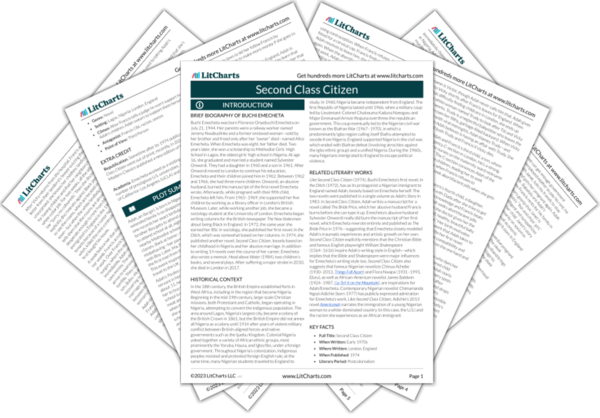Adah fears the coercive cultural power of police, perhaps due to her early childhood experience of witnessing police force her mother to drink
gari. When Francis curses the Indian doctor, he calls the man ugly and implicitly attributes that ugliness to the man’s dark skin. Francis’s colorism (negative attitude toward darker skin on non-white people) shows the racism he has internalized, perhaps as a result of the racist discrimination he has suffered in England.
